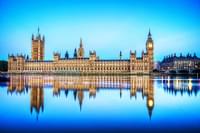
Time for Total Recall
Quinton Richards calls for an expansion of the existing terms of the Recall of MPs Act.
"England could never be ruined but by a Parliament" – Lord Treasurer Burleigh
These prescient words uttered by the Elizabethan statesman over 400 years ago brings us to the nub of our problem. The actions of the parliamentarians themselves who have brought us to this pass by switching away from established conventions of parliamentary rules. The obscurely incomprehensible procedural underpinnings (otherwise known as Conventions) that have until now enabled the transmission of the popular sovereignty through the declared will of the electorate into the political sovereignty of parliament has been undone as completely as if they had been dynamited.
It can clearly be discerned from the latest ex cathedra pronouncements of Speaker Bercow to invited overseas audiences which are more than a reiteration of what he procured earlier this year.
Far from imposing a self-denying ordinance He has decided to place his hands on the scales in the weighing of how Parliament should proceed. These are not idle threats -however they do require the support of MPs pressing the advantage.
This is the wrong that is being practised against the properly understood relationship of the voters to the people.
Ubi jus, ibi remedium where there is a wrong the law provides (or should) a remedy.
Practically, we could enjoin this by enacting a Bill of Sovereign Recall whereby if a significant minority of the registered voters in any constituency had become sufficiently outraged by the behaviour of their representative then extending the principle adopted for the review and recall of an MP for cause i.e. a criminal offence can be extended to cover any manner of public grievance.
This is akin to the recall available to the voters of the State of California which has been exercised most recently as this century to remove the then Governor Brown and his replacement by Governor Schwarzenegger (ironically of Total Recall fame) because of the complete budgetary collapse of the state finances at that time.
Essentially, the rule could go as follows:
- MP goes outside accepted public bounds
- public is outraged
- a group of registered voters (at least 1000) of that constituency initiates recall petition
- petition is not subject to cause (i.e. someone else saying it is frivolous or vexatious)
- the petition succeeds if a predetermined level (12% in aggregate of all preregistered voters from previous election in relevant constituency)
- in fulfilling condition 5 above a new election must be called within 4 weeks and held within the month following that announcement.
- Following the announcement, the MP is removed from representing that constituency and may not stand as candidate in the following election
- The above clause 6 will be held in suspense if within 6 months of the termination of any parliament for general election.
The authority by which parliament is substantiated is not self-standing but relies for its legitimacy upon the universal suffrage. There has developed and now publicly manifested a curious innovation by certain politicians, relying upon a notion of Burkean independence from the electorate, they consider that they operate untrammelled powers under the doctrine of parliamentary sovereignty. A.V. Dicey considered this point in his introduction to the Laws of the Constitution in 1885
"if the doctrine of Parliamentary Sovereignty involves the attribution of unrestricted power to Parliament the dogma is no better than a legal fiction" if only because of the assertion of the electorate's predominant influence.
This can no longer be taken for granted as it may reasonably be supposed that the next intake of MPs after the next election may well repeat what we have already seen in this parliament. As Sir William Blackstone acknowledged in Volume 2 of the Commentaries of the Laws of England:
"But the maxims upon which they proceed, together with the method of proceeding, rest entirely in the breast of the parliament itself; and are not defined and ascertained by any particular stated laws.
Moreover,
True it is, that what the parliament doth, no authority upon earth can undo: so that it is a matter most essential to the liberties of this kingdom that such members be delegated to this important trust as are most eminent for their probity, their fortitude, and their knowledge." (161)
This may draw hollow laughter at the public disgust of recent events.
The furtherance of hidden purposes with the connivance of the Speaker of the House of Commons have prevailed in devising exceptional powers to constrain the exercise of the Administration in the fulfilment of its public manifesto. However, this is not the end of the matter which has caused the teeth of the public to grind in revolt at the insolence of these actors. This licence remains subject to the overriding feature of lawfulness remarked upon and admonished by Lord Chief Justice Holt
"That the authority of the parliament is from the law, and as it is circumscribed by law, so it may be exceeded; and if they do exceed those legal bounds and authority, their acts are wrongful, and cannot be justified any more than the acts of private men." 1 Salk. 505.
The justification is recited in full as follows by Blackstone that:
This sentence seems to imply a discretionary power in the two houses of parliament, which surely is repugnant to the spirit of our constitution. The law of parliament is part of the general law of the land, and must be discovered and construed like all other laws. The members of the respective houses of parliament are in most instances the judges of that law; and, like the judges of the realm, when they are deciding upon past laws, they are under the most sacred obligation to inquire and decide what the law actually is, and not what, in their will and pleasure, or even in their reason and wisdom, it ought to be. When they are declaring what is the law of parliament, their character is totally different from that with which, as legislators, they are invested when they are framing new laws;
Consequently, the merry band of the Honourable members of Parliament Grieve, Letwin, Cooper, Benn and Bercow in his own compass have misconstrued his powers and their acts are wrongful.
Leaving this discretion to the consciences of these individuals and other corporate members of the Commons is clearly unsatisfactory. How can we strengthen the bonds between the People and Parliament?
Taking the focus back to a wider perspective about parliament; sovereignty exercised through elections – much has been written about it and vested denigration of it as no more than an evanescent mist that lifts in the sun of the full glare of the exercise of power by those who would seek to overthrow it.
But the nature of the sovereignty is that each of us by our single vote partake an undivided share of the exercise of that sovereignty and confers by that action the sole legitimacy for the constituent members to meet at Westminster.
How can we the electorate affect and remedy the grievance of individual or multiple usurpation of the trust reposed in these individuals by the constituents. On a limited scale if there is some room theoretically to remove them as justified by John Locke in that
"there remains still inherent in the people 'a supreme power to remove or alter the legislative, when they find the legislative act contrary to the trust reposed in them: for when such trust is abused; it is thereby forfeited, and devolves to those who gave it."
How can we smoke out the miscreants and put the future candidates' feet to the fire before they do further damage than we have witnessed to date?
Bracton in 1235 had the sovereign answer. It lies in the responsibilities of King and parliament not as powers but that "The king has a superior, namely, God. Also the law by which he was made king. Also his curia, namely, the earls and barons, because if he is without a bridle, that is without law, they ought to put the bridle on him."
The Bill of Sovereign Recall is the bridle that the people should put on Parliament. Contracts must be kept. This was the motto of Edward I. In like manner the present parliament has forgotten its roots that Parliament's powers itself are limited to lawfulness as exemplified by Bracton above. Parliament and its members are subject to performing that due process as contracted with the People on the Referendum. It has not made good. A recontracting on terms is now urgently needed as the matter is who is superior? Parliament acting as it presently does as both the Executive at times under Speaker Bercow and his cohorts and at others as the Legislative at his behest OR the People.
In the eventuality of a general election to confirm the new Conservative leader's authority or to break the stasis caused by the continuing rogue behaviour of the MPs each candidate will be pressured in the following way.
By creating a proposition that each candidate can sign up to and get the public vote of whichever political hue- If they shilly shally over it we know not to vote for the them because we will know they are not serious about this. The utility of this is parliamentary housekeeping. Mr Farage wants to break the two party system as a corrupt emanation of parliament because of the infidelity of the parties and their MP's to the public promises made. How do we know that in good time the Brexit party also does not fall foul of this when all that is holding them together is a presumed character of the candidates as being honourable in the fashion that Blackstone imagined?
Given the present levels of public wariness about the probity of MPs and the parties themselves there is a precious rose to be grasped by one of the political parties – the Bill of Sovereign Recall is it
Why don't we, the voters, impose these requirements through this proposition to keep them honest.













